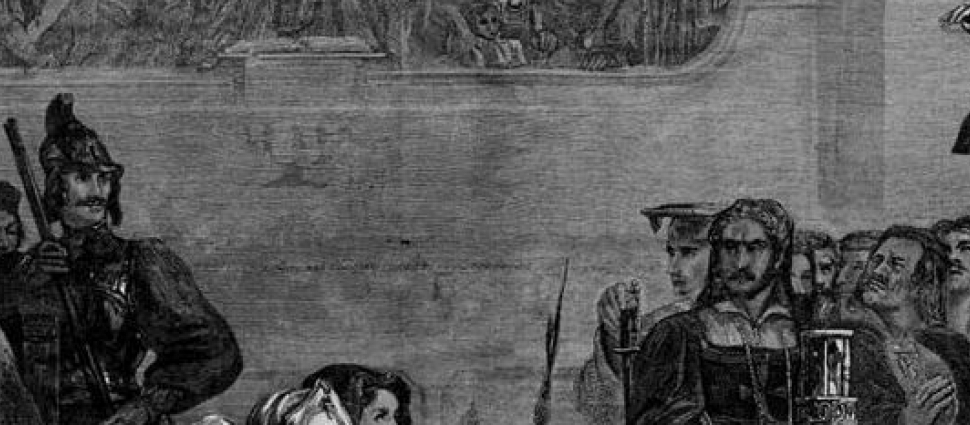John Knox and the Lord’s Supper: Some Practical Points

Apr 20, 2017
Up to this point it has been shown that, for John Knox, the Lord’s Supper is ordained of God; Christ is truly, but spiritually present; and it is a great blessing, but a blessing that is reserved for God’s own people. Knox’s hatred (and that is not putting it too strongly) of the Mass has also been considered. However, an examination of Knox’s teaching on the Lord’s Supper would be incomplete without considering briefly some practical aspects. Knox’s convictions regarding the regulative principle of worship, and his position that “The Table of the Lord is then most rightly ministered, when it approaches most nigh to Christ's own action…” carried with it a number of practical implications. (Knox, “First Book of Discipline” in Works, 2:187)
First, only ordained ministers could administer the sacraments: “The sacraments be rightly administered … by lawful ministers whom we affirm to be only they that are appointed to the preaching of the Word…” (Dennison, Reformed Confessions, 2:202-203. Cf. also Knox, “First Book of Discipline” in Works, 2:186)
Second, the sacrament is under the authority of the Word, and not to be separated from it: “To Christ Jesus his holy Evangel truly preached, of necessity it is, that his holy sacraments be annexed, and truly ministered, as seals and visible confirmations of the spiritual promises contained in the word…” (Knox, “First Book of Discipline” in Works, 2:186) Thus the marks of the church are the preaching of the word, the right administration of the sacraments - and in that order. The sacrament, great blessing though it is, is added to the Word, and confirms the Word, not the other way round. Thus Knox could state to one of his correspondents that “Where Christ is not preached, (mark well that I say, preached), that there hath the Sacrament neither life nor soul…” (Knox, Works, 6:14)
Third, frequency of observance was a matter of liberty. In the Book of Common Order, and in the Order of the English Church of Geneva Knox specified that: “The day when the Lord’s Supper is ministered, which commonly is used once a month, or so oft as the Congregation shall think expedient…” (Knox, “Of the Lord’s Supper” in Works, 4:191) Conversely the First Book of Discipline specified quarterly observance, stating that “four times in the year we think sufficient to the administration of the Lord's Table, which we desire to be distinct, that the superstition of times may be avoided so far as may be…” (Knox, “First Book of Discipline” in Works, 2:239) In summary, Knox held that “We do not deny but that any several church, for reasonable causes, may change the time, and may minister oftener; but we study to suppress superstition.” (Knox, “First Book of Discipline” in Works, 2:240)
Conclusion
There are two points I want to close with, drawn from Knox’s teaching of relevance for today.
First, is his high view of the Supper. In the Supper Christ is present. In a spiritual, but real, way believers do feed on Christ’s body and blood. As such, for believers to neglect the Supper is to do unspeakable hurt their own souls. But, more positively, the real presence of Christ in the Supper demonstrates in the words of Form of the Confession of Faith of the University of Geneva that “the holy Supper, according as Jesus Christ ordained it, is our singular and inestimable treasure.” (Knox, Works, 6:367) We should live our Christian lives believing this is so.
Second, is his teaching on the unity between believers which the Supper should demonstrate. This is a challenge to the broken and divided state of the Reformed Church. There is one Lord, one faith, one baptism, and one Lord’s Table. And yet in practice often this is not so. John Calvin wrote that “This other thing also is to be ranked among the chief evils of our time, viz., that the Churches are so divided, that human fellowship is scarcely now in any repute among us, far less that Christian intercourse which all make profession of, but few sincerely practise … Thus it is that the members of the Church being severed, the body lies bleeding. So much does this concern me, that, could I be of any service, I would not grudge to cross even ten seas, if need were, on account of it.” (Calvin, Tracts and Letters, 5:347-8) Each celebration of the Lord’s Supper surely calls us to desire that the divisions in the Reformed church might be healed.





